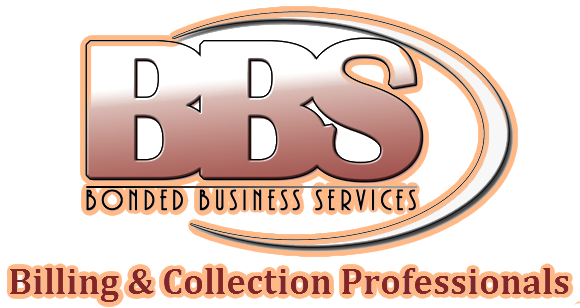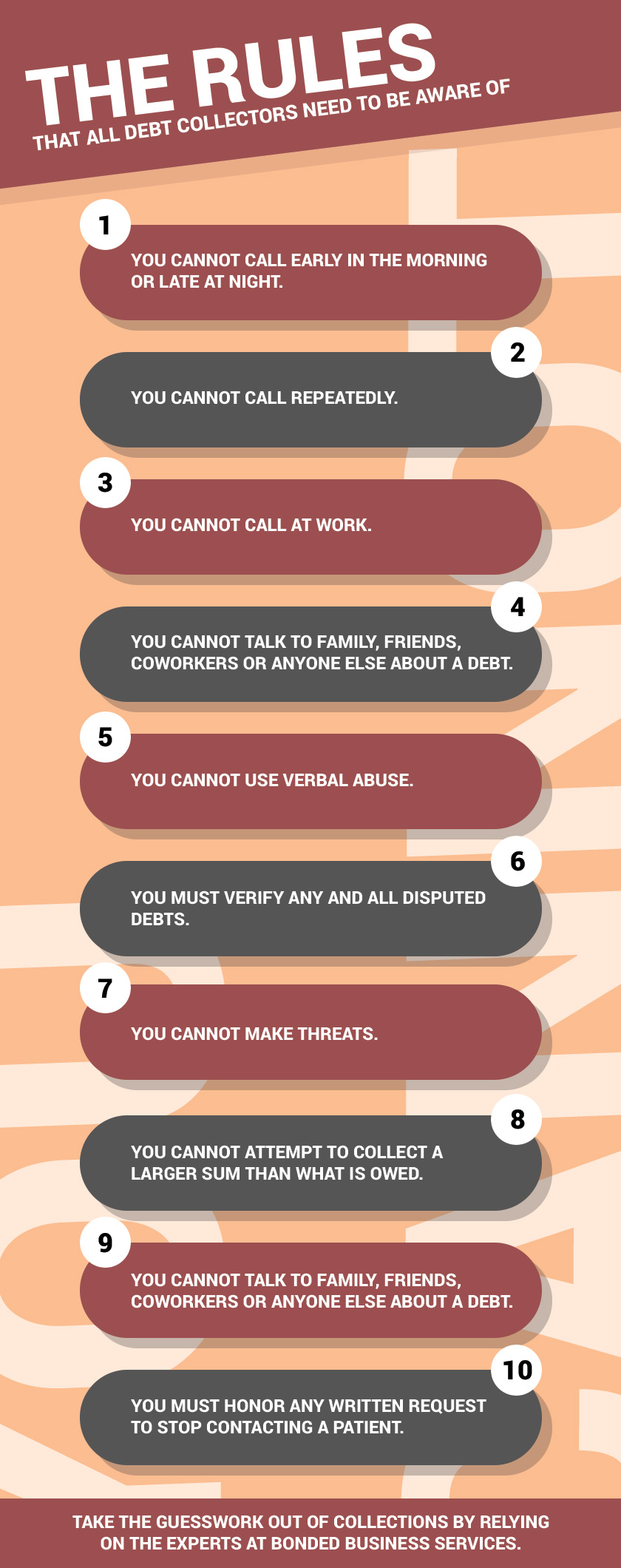Most medical practices aren’t made to handle all of the ins and outs of collecting unpaid bills and past-due balances.
Because of the costs associated with turning to a collections agency, many practices find themselves doing whatever they can to handle their collections on their own. In-house collections typically involve attempting to get the payment fulfilled while the patient is still on the premises, and from there, bills are typically sent through the mail. Sometimes, particularly when a practice has had bad luck collecting debts in the past, they will mail bills to clients under another company name, like “The Collection Center.”
This may seem innocent enough, and if your patients believe that they are being sent to collections, it may even prompt them to pay their bills quicker. However, if your strategy for collecting debt is dependent on suggesting that bills and payment reminders are coming from another company, then it’s time to get familiar with The Fair Debt Collection Act. The Fair Debt Collection Act was enacted to protect consumers from unfair debt collection practices. While this act is applicable primarily to debt collection agencies, lawyers and anyone else who collects debt on behalf of another party, it is also applicable to anyone who collects debt under a different name. If your practice fits this description, then it’s essential to learn the rules that govern debt collection.
#1. You cannot call early in the morning or late at night.
You can call, text or send physical letters or email to your patients about their unpaid bills, but if calling is your preferred method, you’ll need to be careful about when you call. Unless your patient has specifically asked you to call during these times, it’s never acceptable to call prior to 8 AM or after 9 PM. However, Since The Fair Debt Collection Act dates back all the way to 1977 — which was long before the first text message was sent — it does not set forth any restrictions on when it’s acceptable to text patients.
#2. You cannot call repeatedly.
It is unacceptable to call a patient over and over again in a single day to talk about unpaid debt. The Federal Trade Commission (FTC), which enforces The Fair Debt Collection Act, considers repeated and continuous calling to be harassment. And, if a patient has challenged the bill or disagreed with it in writing, you are not allowed to keep contacting them until the debt has actually been verified.
#3. You cannot call at work.
For many people, taking personal calls at work is unacceptable, whether because of company policies or just the nature of the job. And, when a patient informs you verbally or in writing that they do not want you to contact them about debt at work, you can no longer do so legally.
#4. You cannot talk to family, friends, coworkers or anyone else about a debt.
In order to track down a patient who you may no longer have an address or a phone number for, you are allowed to contact people close to them, such as their friends, family members, neighbors or even coworkers. But, it’s absolutely essential that you are incredibly careful if you do this, as it is not acceptable to talk to anyone other than the individual, their lawyer or their spouse about a debt.
#5. You cannot use verbal abuse.
Under no circumstances can you use profanities or threatening language when you are contacting a patient about a debt. It’s also unacceptable to mislead a patient into thinking they are committing a crime by not paying the bill.
#6. You must verify any and all disputed debts.
If a patient disputes a debt, whether it’s because they don’t believe they owe any money at all or they think the amount they owe is incorrect, you cannot keep contacting them until the debt has been investigated. Any debts that have been disputed in writing must be verified before you make any additional contacts. However, once a verification has been sent, you can start contacting them again.
#7. You cannot make threats.
In the past, some collectors have been known to use threats in order to collect debts. These threats may range from taking the property away and having the individual arrested to violence. And, the only time it is acceptable to threaten to sue a patient over a debt is when you actually plan to file a lawsuit; otherwise, it’s unacceptable.
#8. You cannot attempt to collect a larger sum than what is owed.
It is never acceptable to attempt to collect more than what a patient actually owes. When you send the patient the debt validation notice in writing, it absolutely must include the amount owed, and it is illegal to claim that the patient owes more.
#9. You must send out a written notice of debts.
 Sending patients a statement that outlines their debt is an important part of the collections process. This must be done within five days of your first contact with a patient, and the notice must include the amount owed, the creditor’s name (your business), as well as an explanation for what to do if the patient wants to dispute the debt.
Sending patients a statement that outlines their debt is an important part of the collections process. This must be done within five days of your first contact with a patient, and the notice must include the amount owed, the creditor’s name (your business), as well as an explanation for what to do if the patient wants to dispute the debt.
#10. You must honor any written request to stop contacting a patient.
If a patient wants you to stop contacting them about a debt, and they make a request in writing for you to stop contacting them, you must honor that request. But, this doesn’t mean that the patient’s debt goes away. If they fail to pay it, it’s still possible to sue them for the amount owed.
As you can see, there are many rules that govern debt collection, and the best way to ensure that your practice is in compliance is by working with the right collections agency. At Bonded Business Services, we’ve been meeting Colorado’s debt collection needs since 1952, and we have what it takes to help you recoup lost revenue while staying in compliance with all rules and regulations. We serve a wide range of industries, from hospitals and doctor’s offices to government agencies. Contact us today to get started!




